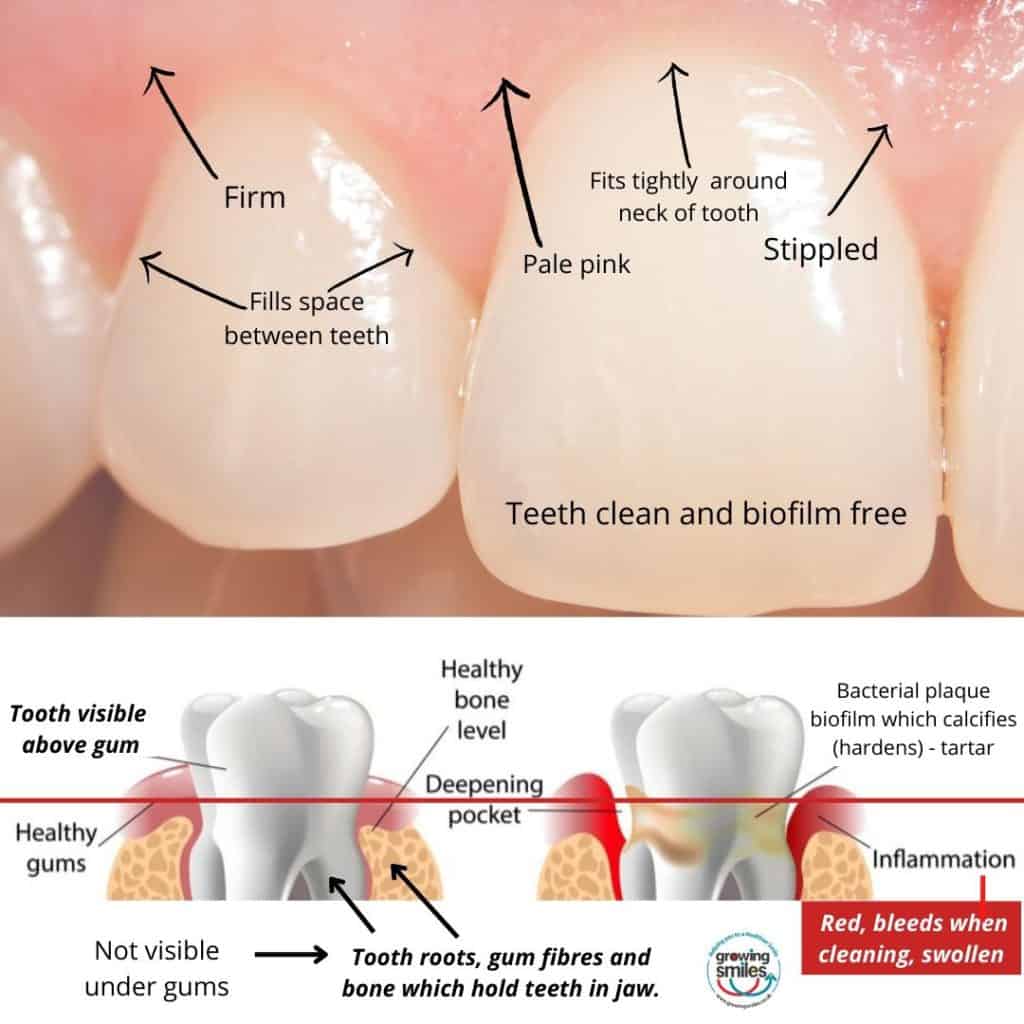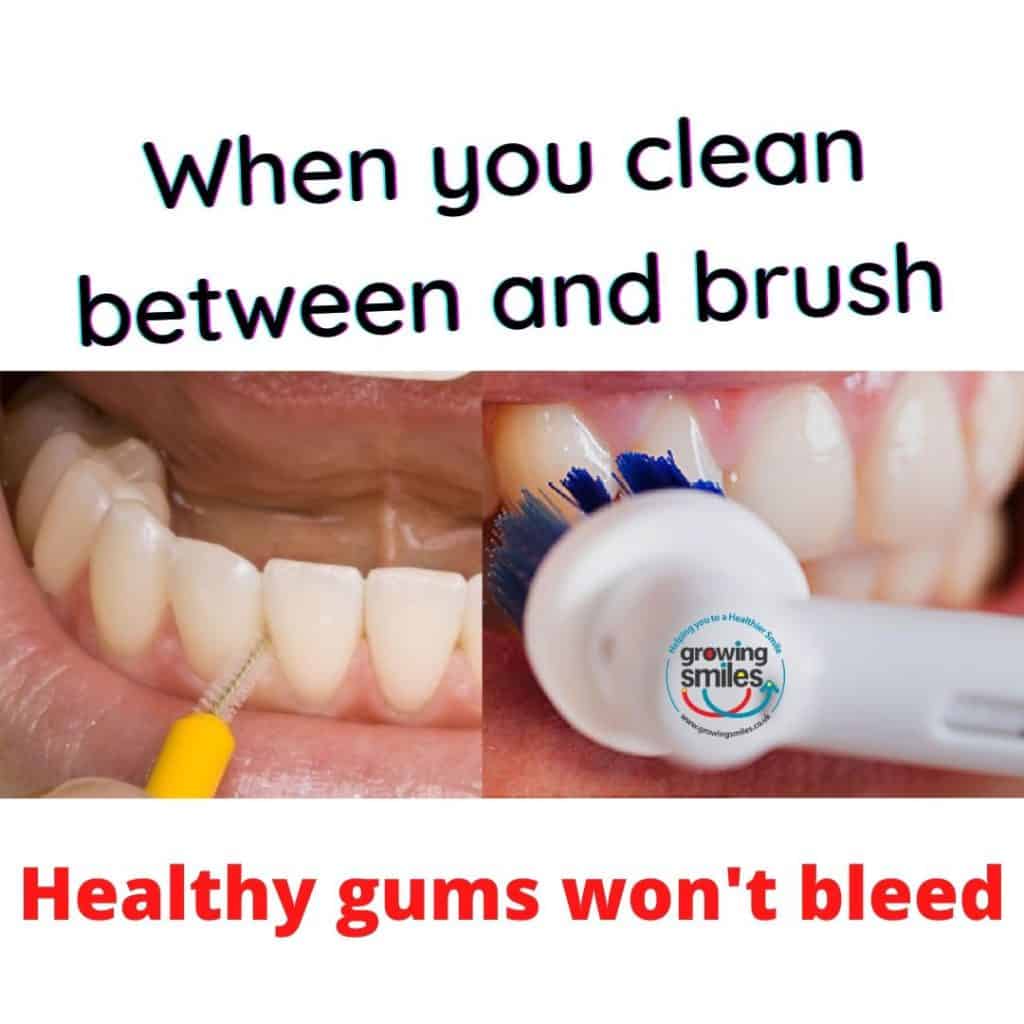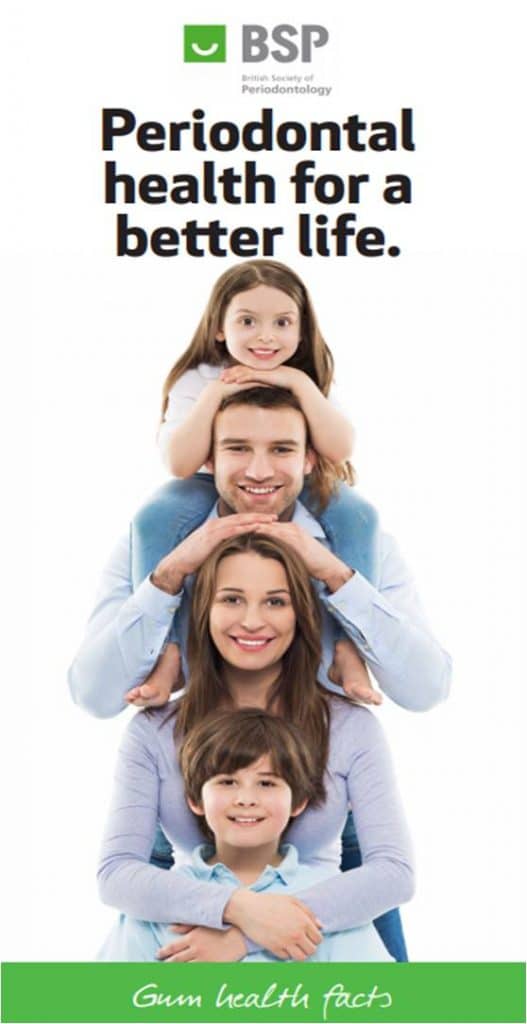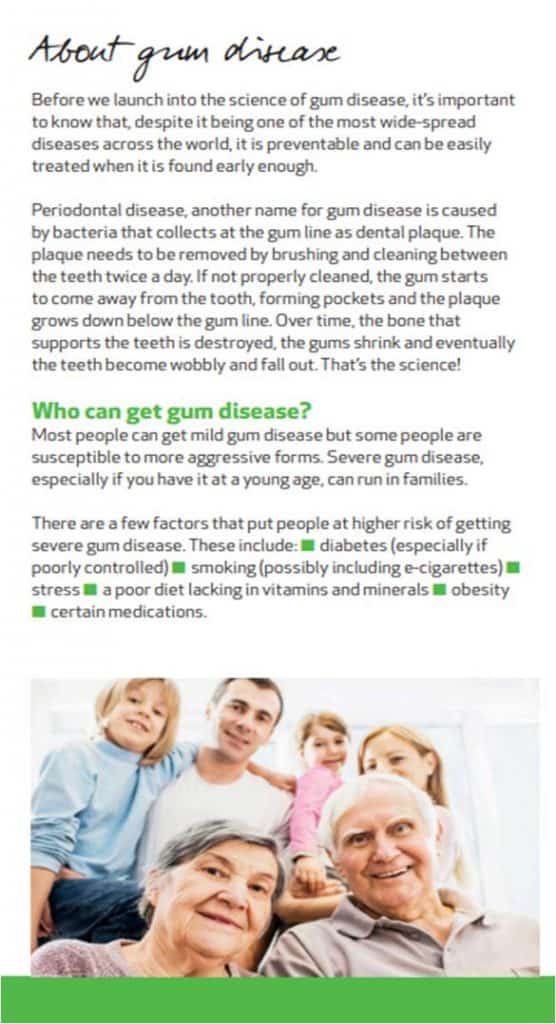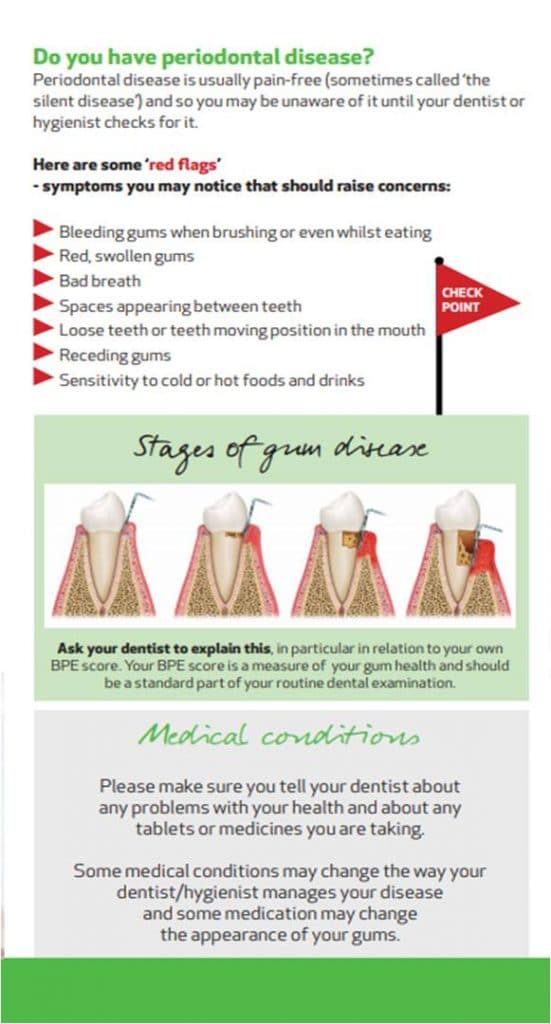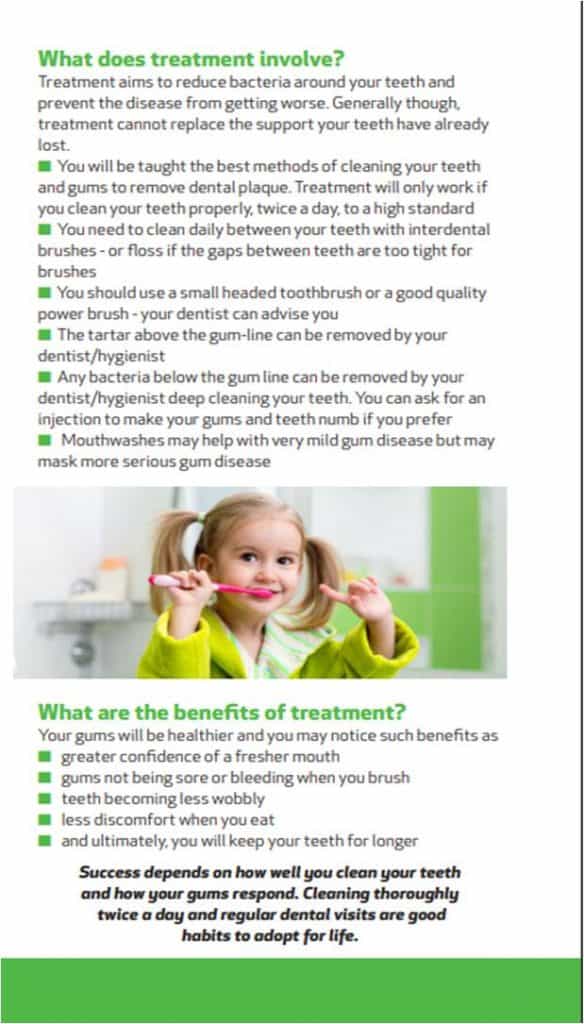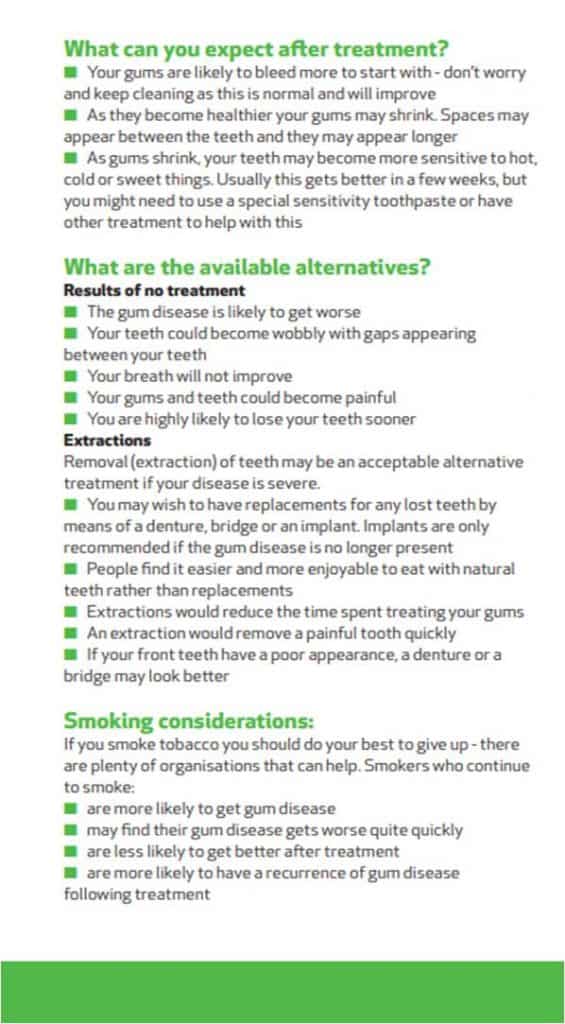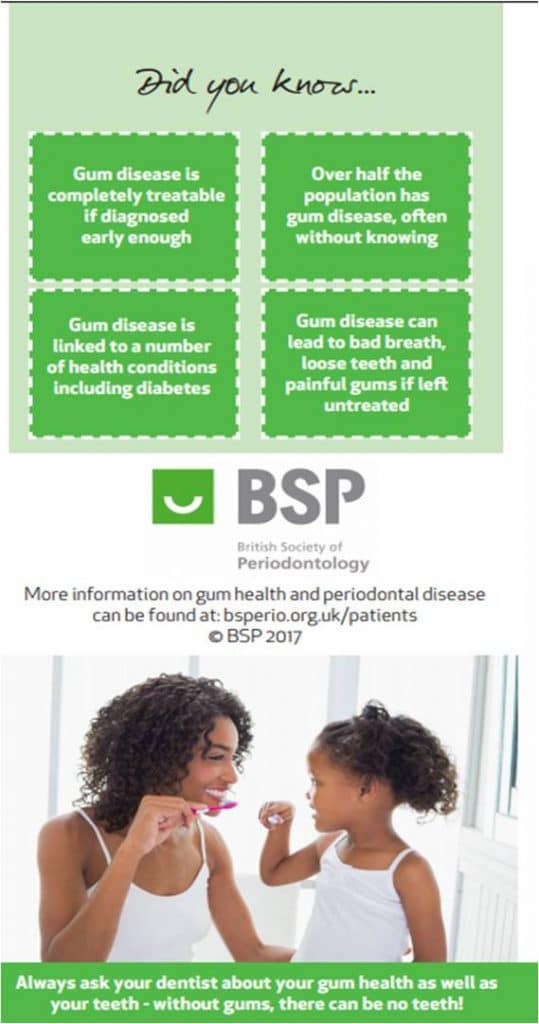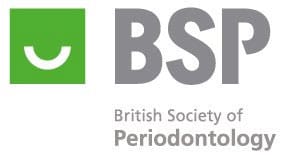There are two main types of gum disease – gingivitis, which is reversible but it can develop into periodontitis which may lead to tooth loss. Periodontitis can be stabilised and controlled. Effective home care and early treatment by your dental team are the foundation to maintaining your smile for life. Early signs of gum disease are bleeding, receding gums, sensitivity, teeth moving, swollen gums, gum abscesses (gum boils) and bad breath. HEALTHY GUMS DON’T BLEED.

February 2024
- While people vary in their susceptibility, the main cause of periodontal diseases is the presence of dental plaque
- Gingivitis is reversible with improved self-care
- Damage to the periodontal tissues caused by periodontitis is irreversible but the disease can be stabilised.
- Self-care is crucial for the prevention and management of periodontal diseases
- Risk assessment and formal diagnosis by your dental team helps enable the provision individualised care
Periodontal (gum) disease affects the gums, bone and other supporting structures around the teeth. Most of us will experience occasional gum inflammation or gingivitis (bleeding), but only about 10% of the population experience severe gum disease which can result in bone loss and subsequently tooth loss.The periodontal tissues are special tissues that surround and support your teeth and hold them in the jaw.
Periodontology is the area of dentistry that studies the periodontal tissues or periodontium. Think of your ‘gums’ as the foundations of your mouth. The ‘periodontal’ tissues support and hold teeth in the jaw. They are crucial to oral health, overall health and wellbeing.
Gum disease is preventable.
It is caused by bacteria in the sticky plaque biofilm that forms on teeth, gums, tongue, soft tissues and dental appliances e.g. dentures. Our warm, wet mouth plays host to a ‘microbiome’ of, amongst other things bacteria, fungi, and viruses. The biofilm that develops in our mouths makes a perfect home for bacteria to grow and develop – and cause problems if left undisturbed!

When plaque biofilm is left on teeth it calcifies from minerals in saliva. Once calcified (hardened) it can’t be removed by brushing. More plaque sticks to the rough tartar surface and tartar becomes thicker. Tartar is ‘plaque retentive’, meaning it retains plaque on its surface – usually around the gum margins, which allows the bacteria to ‘irritate’ and cause inflammation. It it important to have tartar removed professionally by your dental team.
THE GOOD NEWS – Biofilms can be removed by mechanical means using a toothbrush and the tools for cleaning between teeth where a toothbrush can’t reach (interdental brushes, floss etc). However, they immediately begin to reform.
Are you at risk of severe gum disease? Some risk factors you have little or no control over e.g. family history, but others are very much within your own control.
Risk factors for gum disease include family history, tobacco use (smoking, chewing etc), diabetes, obesity, poor diet (high sugar, lacking in minerals and vitamins), certain medications and stress. Smoking affects your response to gum treatment and also increases your risk of tooth loss. Get help to quit here.
Daily, effective plaque biofilm control is in your hands and will take TIME. Use a manual or power toothbrush to clean every surface of all teeth at least twice a day. Clean between teeth BEFORE toothbrushing with a fluoride toothpaste. Speak to your dental team or contact us for advice on what are the best tools to help you practice effective biofilm control.
Treatment carried out by your dental team MUST be supported by your efforts at home to be successful.
Sensitive teeth? A common side effect of gum disease and its treatment is gum recession and related dentine hypersensitivity. Oral health coach LeighGS discussed this and its management on Talking Teeth Thursday. Watch here.
Who gets gum disease?
The British Society of Periodontology explain that while most of us some gum inflammation ( bleeding) at times only around 10% of the population seem to experience more severe forms which results in loss of bone that supports the teeth in the jaw. These people are more at risk of losing teeth due to gum disease. Gum disease is linked to other diseases and conditions such as diabetes, pregnancy and cardiovascular disease. Follow the links to learn more.
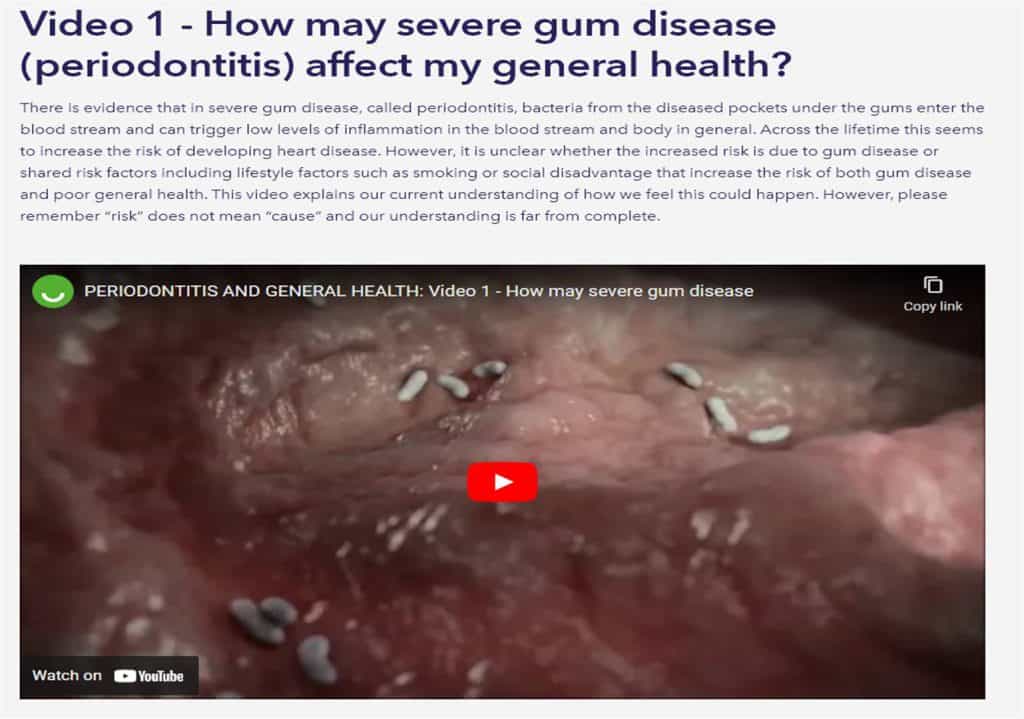
Learn more about gum disease and general health in this video.
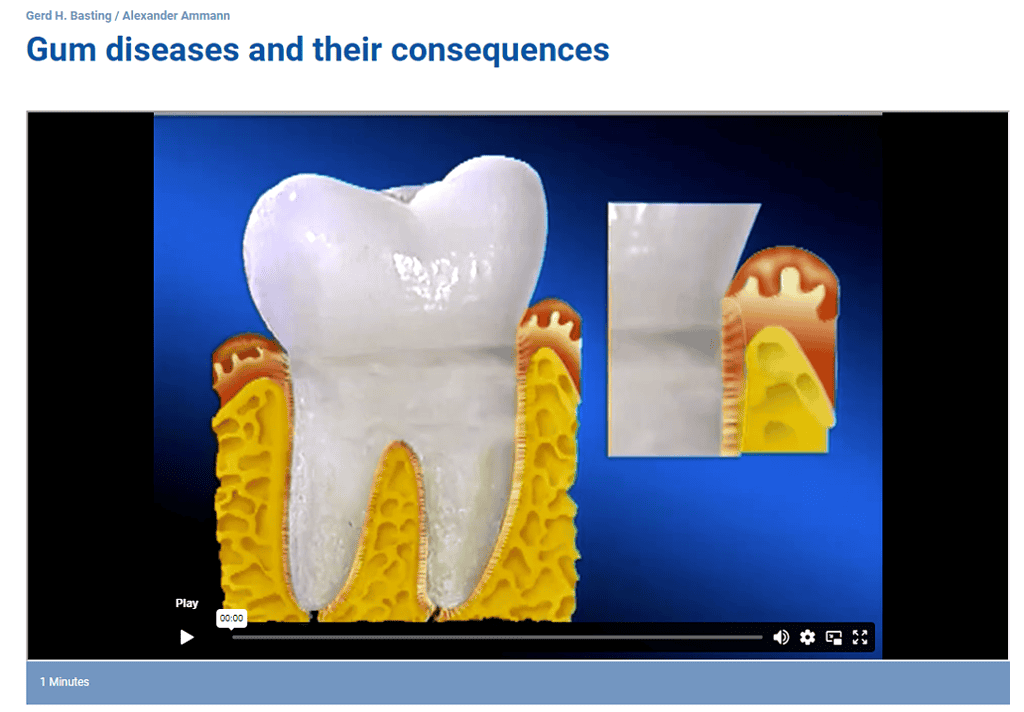
Quintessence Publishing has produced a short video explaining the consequences of ignoring bleeding gums.
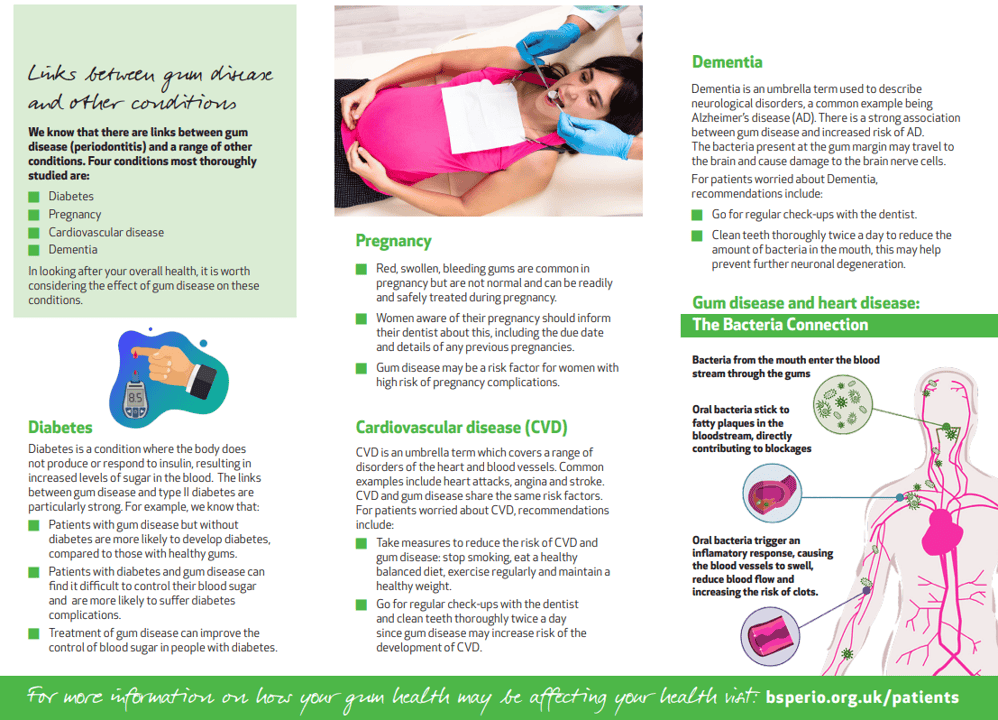
The British Society of Periodontology have produced this leaflet Healthy gums, healthy body healthy life (2023) .

The World Health Organisation (WHO) now recognises severe gum disease (periodontitis) as the 6th most prevalent disease of mankind. Shocking when it is largely preventable with good oral hygiene and regular dental check-ups.! Periodontitis is a chronic inflammatory disease caused by bacteria, that affects the supporting tissues around the teeth. Listen to Professor Iain Chapple – professor of periodontology at the University of Birmingham (UK) and former EFP secretary general – discussing the financial and human cost of gum disease.
Growing Smiles recommends the following for more information about gum disease and oral health
Considering dental implants?
This information leaflet recently updated, has been created by the Association of Dental Implantology. It gives a non bias overview of things to consider if you are thinking of dental implants to replace missing teeth. Dental implants are one option to replace natural teeth, but embarking on treatment, which is often expensive, should be with ‘eyes open’ and a commitment to maintaining the implants once they are in your mouth.
Dental implants are not ‘screw in’ teeth that do not require effort in the way of home care. In fact, we like to see anyone with dental implants being OCD about their oral hygiene! They need to work harder at their oral care! This promotes the health and stability of the implants, remaining natural teeth, gums and any associated appliance e.g. bridge, removal denture etc.
Dental implant therapy can take time, money and effort. They are an investment in your smile and overall health and wellbeing. They will require regular professional maintenance care e.g. dental hygiene visits for professional plaque removal, as well as professional monitoring to ensure health and stability. We recommend reading this patients guide to dental implant treatment and talking to your dental team for advice on your individual circumstances and suitability for dental implants. Got a question? Why not take Time out for your teeth with one of oral health coaches to discuss looking after your mouth.

